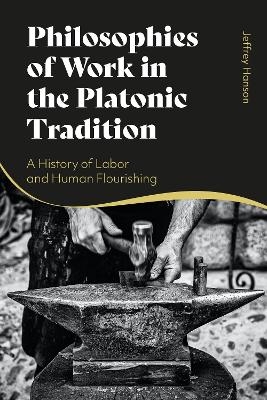
Philosophies of Work in the Platonic Tradition
A History of Labor and Human Flourishing
Seiten
2022
Bloomsbury Academic (Verlag)
978-1-350-15093-5 (ISBN)
Bloomsbury Academic (Verlag)
978-1-350-15093-5 (ISBN)
The Platonic tradition affords extraordinary resources for thinking about the meaning and value of work. In this historical survey of the tradition, Jeffrey Hanson draws on the work of its major thinkers to explain why our contemporary vocabulary for appraising labor and its rewards is too narrow and cramped. By tracing out the Platonic lineage of work Hanson is able to argue why we should be explaining its value for appraising it as an element of a happy and flourishing human life, quite apart from its financial rewards.
Beginning with Plato’s extensive thinking about work’s relationship to wisdom, Hanson covers the singularly powerful arguments of Augustine, who wrote the ancient world’s only treatise dedicated to the topic of manual labor. He discusses Bernard of Clairvaux, introduces the priest-craftsman Theophilus Presbyter, and provides a study of work and leisure in the writings of Petrarch. Alongside Martin Luther, Hanson discusses John Ruskin and Simone Weil: two thinkers profoundly disturbed by the conditions of the working class in the rapidly industrializing economies of Europe.
This original study of Plato and his inheritors’ ideas provides practical suggestions for how to approach work in a socially responsible manner in the 21st century and reveals the benefits of linking work and morality.
Beginning with Plato’s extensive thinking about work’s relationship to wisdom, Hanson covers the singularly powerful arguments of Augustine, who wrote the ancient world’s only treatise dedicated to the topic of manual labor. He discusses Bernard of Clairvaux, introduces the priest-craftsman Theophilus Presbyter, and provides a study of work and leisure in the writings of Petrarch. Alongside Martin Luther, Hanson discusses John Ruskin and Simone Weil: two thinkers profoundly disturbed by the conditions of the working class in the rapidly industrializing economies of Europe.
This original study of Plato and his inheritors’ ideas provides practical suggestions for how to approach work in a socially responsible manner in the 21st century and reveals the benefits of linking work and morality.
Jeffrey Hanson is Senior Philosopher in The Human Flourishing Program at Harvard’s Institute for Quantitative Social Science at Harvard University, USA.
Introduction
1. Plato
2. Early Monasticism
3. Augustine
4. Hugh of Saint Victor and the High Middle Ages
5. Petrarch and the Renaissance
6. Martin Luther
7. John Ruskin
8. Simone Weil
Conclusion
Bibliography
Index
| Erscheinungsdatum | 06.04.2022 |
|---|---|
| Verlagsort | London |
| Sprache | englisch |
| Maße | 156 x 234 mm |
| Themenwelt | Geisteswissenschaften ► Philosophie ► Geschichte der Philosophie |
| Geisteswissenschaften ► Philosophie ► Philosophie der Neuzeit | |
| Geisteswissenschaften ► Religion / Theologie | |
| ISBN-10 | 1-350-15093-2 / 1350150932 |
| ISBN-13 | 978-1-350-15093-5 / 9781350150935 |
| Zustand | Neuware |
| Haben Sie eine Frage zum Produkt? |
Mehr entdecken
aus dem Bereich
aus dem Bereich
die kolonialen Wurzeln der französischen Theorie
Buch | Hardcover (2024)
Matthes & Seitz Berlin (Verlag)
28,00 €
oder Das Leben Montaignes in einer Frage und zwanzig Antworten
Buch | Softcover (2023)
C.H.Beck (Verlag)
18,00 €


